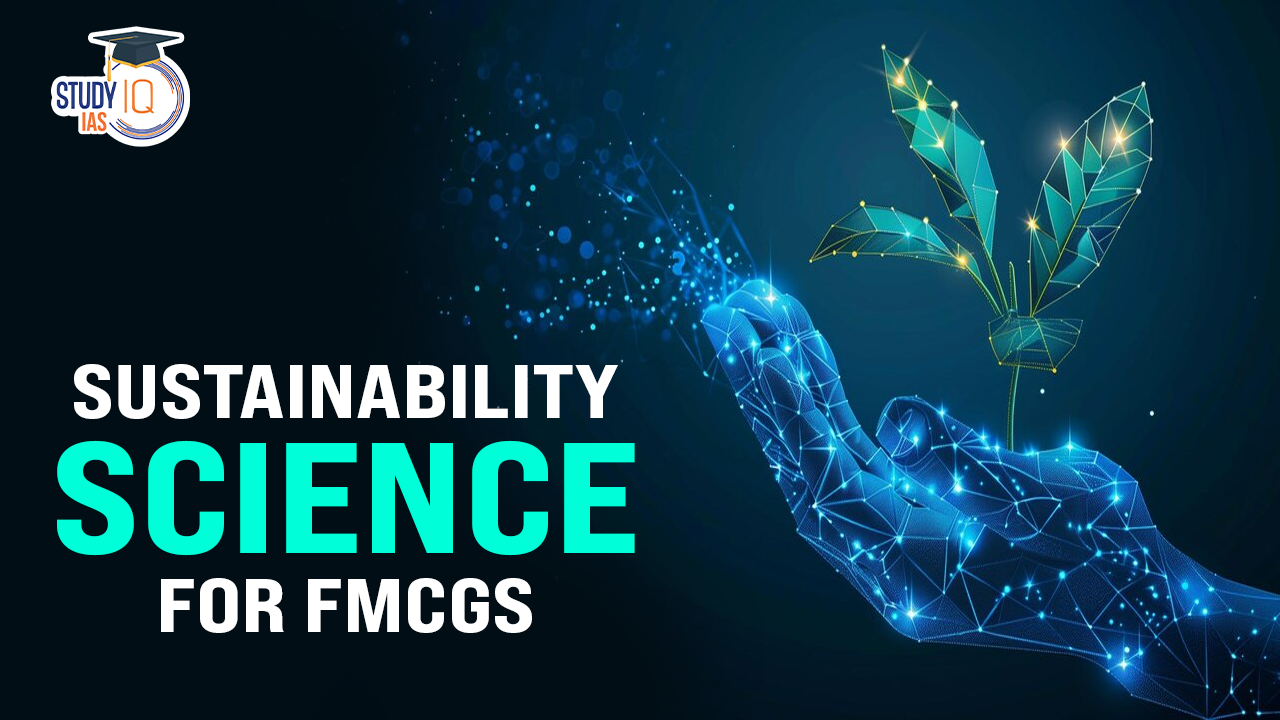Table of Contents
What are FMCGs?
- The FMCG (Fast-Moving Consumer Goods) industry produces everyday products that people frequently buy, use quickly, and restock often.
- These items generally have low prices and short shelf lives, encouraging regular purchases.
- Examples of FMCG Products
- Food and Beverages: Packaged snacks, soft drinks, bottled water, dairy products, and instant noodles are FMCG items since they are consumed frequently and are widely available.
- Personal Care Products: Shampoos, soaps, toothpaste, and cosmetics are common FMCGs. They’re small, inexpensive items that people buy regularly and replace after frequent use.
- Household Items: Laundry detergents, disinfectants, toilet paper, and kitchen supplies also fall under FMCG. These items are bought often for daily household maintenance.
- Over-the-Counter (OTC) Medicines: Basic medicines like pain relievers, cough syrups, and allergy medications are FMCG products since they’re widely accessible without prescriptions and have high turnover rates.
Reducing Palm Oil in Soap Production
- Environmental Impact of Palm Oil: The soap industry is heavily reliant on palm oil, which is linked to:
- Significant greenhouse gas emissions.
- Loss of biodiversity due to deforestation in regions like Borneo, Sumatra, and the Malay Peninsula.
- Palm oil accounts for approximately 40% of global vegetable oil demand, making it a lucrative but environmentally damaging choice.
Challenges in Replacing Palm Oil
Replacing palm oil in soap production poses challenges due to:
- Higher yields of palm oil compared to alternative vegetable oils.
- Its dual role in providing both cleansing properties (15-20% lower chain fatty acids) and structural integrity (longer chain fatty acids) in soap bars.
Technological Solutions
- Emerging technologies offer potential solutions:
- Synthetic Biotechnologies: Capable of creating artificial fatty acid chains that mimic palm oil functionalities.
- Plant-Based Alternatives: Local plant polysaccharides could replace non-functional components of soap.
- Additionally, reducing the amount of hard soap could allow for the incorporation of beneficial agents like antimicrobial peptides.
Government Support and Sustainable Practices
- To facilitate these transitions, strong support from both government and civil society is essential.
- This includes:
- Developing bio-based or bio-synthetic materials for soap production.
- Innovations in packaging to reduce or eliminate plastic use.
| National Mission on Edible Oils |
Launched in August 2021, this initiative aims to expand palm oil production sustainably:
|


 Why Are Tribals Protesting in Maharashtr...
Why Are Tribals Protesting in Maharashtr...
 Rise in Southern States’ Share in Fund...
Rise in Southern States’ Share in Fund...
 Devnimori Relics of Lord Buddha in Sri L...
Devnimori Relics of Lord Buddha in Sri L...

























